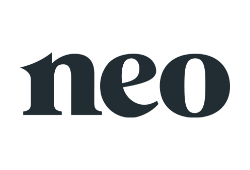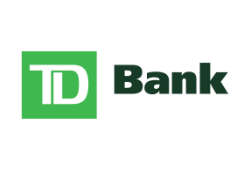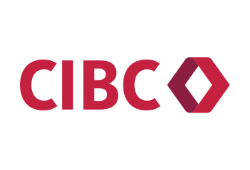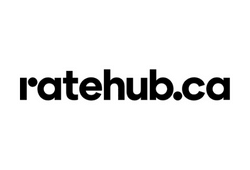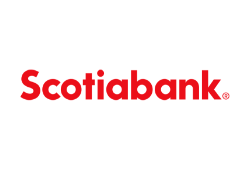Best Mortgage Lenders in Canada
If you're buying a house, you're going to need a mortgage. And if you want to get the best possible rate, you'll need to do your homework.
In Canada, mortgage rates are largely determined by the "big five" banks: Royal Bank, the Bank of Montreal, Canadian Imperial Bank of Commerce, the Bank of Nova Scotia, and Toronto-Dominion Bank.
We've added some less common names to the list as well, just in case you're looking for a region-specific option.
Best Mortgage Lenders in Canada for February 2026
Neo Mortgage™ is a modern approach to mortgages in Canada, focused on providing users of all credit ranges with a quick mortgage application process and the lowest rates on the market. The company offers a fully digital mortgage, finding you the best available rate in a matter of minutes, with no fees or commissions attached, and a 5% down payment. Every customer also has access to a personal dedicated mortgage advisor who will help you with any questions you may have regarding your loan.
- •120-day rate lock
- •Available to applicants with lower credit scores
- •No commissions
Formerly known as ING Direct Canada, Tangerine is an online bank that offers a wide range of products, including savings and checking accounts, credit cards, HELOCs, and mortgages. As a subsidiary of Scotiabank, Tangerine offers some of the most affordable rates, the lowest variable-rate mortgage, and safe and secure banking. If you apply for a mortgage at Tangerine, you'll get a mortgage rate guaranteed upfront for 120 days, flexible prepayment options, a dedicated mortgage account manager, and more.
- •Mortgage rate locked in for 120 days before purchasing
- •Lump sum prepayment up to 25%
- •Portable mortgage products
DUCA is a tried-and-true financial institution that's been around for over 80 years. Since its establishment in 1954, DUCA has accrued a base of over 75,000 customers and 16 branches across Southern Ontario. When you apply for a mortgage at DUCA, you can expect personalized service from start to finish, low mortgage rates, and flexible terms. DUCA offers second mortgage and co-op mortgage products, along with HELOCs, in its comprehensive suite of loan products.
- •Mobile mortgage specialists' service
- •Various prepayment options
- •Second-lowest fixed mortgage interest rate
TD Bank is one of the top North American banks with a long history dating back to 1852. The bank is also one of the leading mortgage lenders in Canada, where it operates through TD Canada Trust. It offers a full range of banking products, including savings and checking accounts, credit cards, personal investing options, insurance, and mortgages. When you apply for a mortgage at TD Bank, you'll get 24/7 support and advice, online preapproval, robust rate calculators and tools, and special offers.
- •High-ratio mortgage offer
- •Pause mortgage payments due to emergency
- •Special offer cash bonuses of up to $3,000
CIBC is one of the Big Five banks that dominate the Canadian banking sector and has been around since 1867. Whether you're buying your first home, renewing your mortgage, using your home equity, or looking to refinance, you can count on CIBC for a comprehensive range of products and services. When you apply for a mortgage at CIBC, you'll get access to flexible repayment options, expert advice, and numerous tools and resources. You can also take advantage of special deals and cash back when you switch to a CIBC mortgage.
- •Personalized mortgage advice
- •CIBC free credit report service
- •$3,000 cash back when you switch to a CIBC mortgage
Ratehub.ca, previously known as CanWise Financial, is an independent mortgage broker that partners with the leading banks and financial institutions to bring you the best rates possible. Ratehub.ca is a one-stop shop for all your mortgage needs, whether you're buying a home, renewing your fixed-rate mortgage, refinancing, or looking to use your home equity. When you work with Ratehub.ca, you'll get access to the most competitive rates, exclusive discounts, personalized service, and expert advice.
- •Mortgage for applicants with bad credit
- •“New to Canada” program
- •Volume discounts
Yet another member of the Big Five banks in Canada, Scotiabank is a leading bank in the Americas with a long history dating back to 1832. With a network of 947 branches in Canada and more than 1,200 branches across 13 countries worldwide, Scotiabank is a truly global bank. In Canada, Scotiabank offers a wide range of products and services for personal, commercial, and small business needs. When it comes to mortgages, you can count on good rates, short-term fixed mortgages, closed-term fixed mortgages, variable mortgage products, and much more.
- •Ability to track your application status via mobile app
- •Scotia Total Equity Plan for leveraging up to 80% of your home value
- •Pre-approval in minutes
Top 5 Mortgage Lenders in Canada - Our Picks for 2026:
Neo Mortgage™ - Fast application process
Tangerine - Lowest variable rates
DUCA - Lowest fixed rates
TD Bank - Online preapproval and application
CIBC - Personalized mortgage advice
A Beginners Guide to Mortgages
If you're new to the world of mortgages, don't worry – we're here to help. Below, we've put together a comprehensive guide to mortgages in Canada, complete with all the information you need to get started and find a bank with the lowest interest rates on mortgages.
What Is a Mortgage?
A mortgage is a type of loan that you take out to buy a property. The loan is secured against the property, which means that if you miss the monthly payment enough times, the lender can take possession of your real estate and sell it to recoup its money.
Mortgages are typically repaid over up to 30 years, although this can vary. This period is called the “amortization period” and refers to the time it will take you to pay off your mortgage in full.
The amortization period differs from the mortgage term, which is the time you have to make your mortgage payments at your agreed interest rate. The most common amortization period in Canada is 25 years, while the most common term is 5 years.
Keep in mind that most mortgages usually have fixed interest rates, which means that your monthly mortgage payment will stay the same for the duration of the mortgage term.
The payment consists of the principal share and interest share, with the mortgage principal amount being the amount you borrowed and the interest being the fee charged by the lender.
What Are Mortgage Rates?
A mortgage rate is the interest rate lenders charge on mortgages. It can vary depending on several factors, including the type of mortgage (e.g. with fixed vs. variable interest rates), the term length, your credit history, and the size of your down payment. Note that all the banks set their own rates by adjusting to the so-called prime rate.
The prime lending rate is the annual borrowing rate primarily influenced by the figures set by the Bank of Canada, and it's currently 5.95% in Canada.
Finally, let's differentiate between the interest rate and the APR.
The mortgage interest rate is the percentage of your principal you'll need to pay yearly, while the latter includes the interest rate and other fees charged by the lender, such as origination fees, discount points, mortgage insurance, and most mortgage agreement closing costs.
Mortgage Type
Fixed-rate-mortgage interest rates remain the same for the whole term, while for variable-rate mortgages, interest rate fluctuations depend on market conditions.
Even though they were predominant before, fixed rates have slowly become less common, as variable mortgage rates became much lower.
Canadians can also opt for hybrid mortgages, also called convertible mortgages. They charge fixed mortgage rates for a certain period and then switch to a variable interest rate.
Open vs. Closed Mortgages
When looking for a mortgage, pay attention to whether it is open or closed because this will affect how easy it is to pay it off. With an open mortgage, you can make lump-sum payments or even repay the entire mortgage without any penalties.
A closed mortgage has stricter payment terms, and you may be penalized for making early payments or paying off the entire loan before the term is up.
Term Length
The term length is the amount of time within the amortization period you have to repay the mortgage. The most common term length in Canada is 5 years, but you can also find a short-term mortgage with a repayment period of as little as 6 months, or go up to 10 years.
According to statistics, the best rates are offered for 5-year fixed mortgages, as they account for more than 50% of all applications.
The shorter the mortgage term, the higher your monthly payment will be, but you'll pay less interest overall. Longer terms will have lower monthly payments, but you'll pay more interest in the long run.
Once your mortgage term is over, you can either pay off the remaining balance or renew your mortgage at an interest rate you'll have to renegotiate with your lender at that time.
Credit History
Your credit history is reflected in the number lenders use to assess your creditworthiness. The higher your score, the lower the interest rate you'll be offered.
If you have good credit, which is anywhere between 660 to 724, you're more likely to be offered lower mortgage interest rates. Generally, banks in Canada require borrowers to have a credit score of at least 600 to be eligible.
Those with bad credit may still be able to get a mortgage, but they'll likely have to pay a higher interest rate.
If you're a newcomer to Canada, you may not have any credit yet. Some banks will, however, lend to newcomers, should they provide proof of entry into Canada and supporting documents such as a passport and landing papers or a Canadian permanent resident card.
Size of Down Payment
The size of your down payment will also affect your mortgage rate. The larger this initial payment, the less risk you pose to the lender and the lower your mortgage rate will be. A down payment of 20% or more will usually get you the lowest interest rate for your mortgage.
In case you can only afford to provide less than 20% as a down payment, you will still be able to get a mortgage.
Still, you will have to get CMHC mortgage default insurance premiums (or choose to go with an alternative private mortgage insurer or private mortgage lender) that typically ranges from 2.8% to 4% of your mortgage amount.
The premium for default insured mortgages is typically added to your mortgage amount and spread out over its term.

